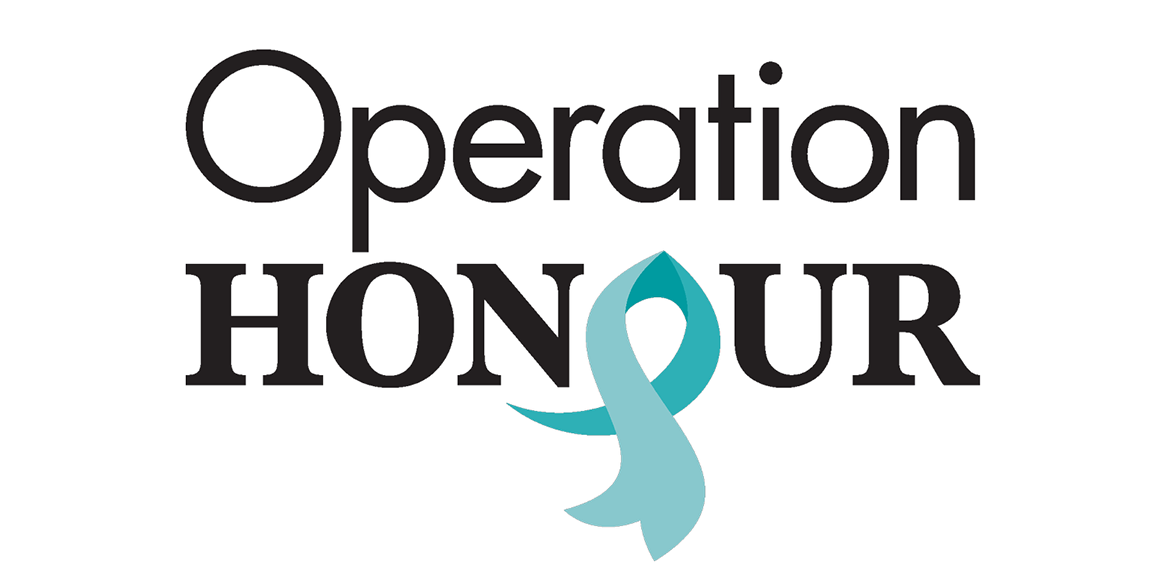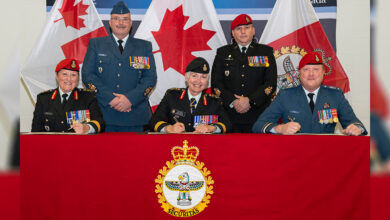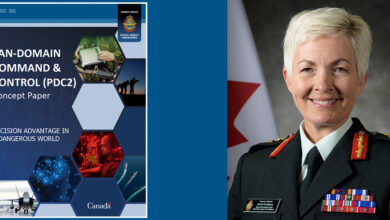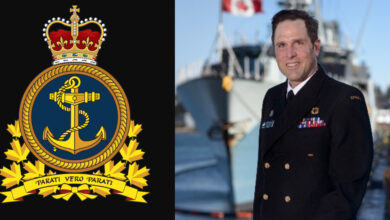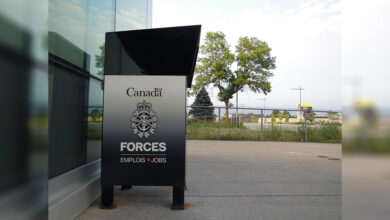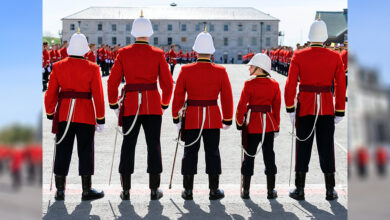Getting AwayPolicy
CDS Announces Plan to Address Sexual Misconduct
An action plan was released today to address inappropriate sexual behaviour in the Canadian Armed Forces (CAF).
The Chief of Defence Staff, General Tom Lawson also publicly released the independent external review authority’s report into sexual misconduct and sexual harassment.
“For an institution such as the Canadian Armed Forces, one built on the camaraderie and trust, inappropriate sexual behaviour is utterly corrosive,” said Lawson.
Lawson was joined at the news conference by Chief Warrant Officer Kevin West, Madame Marie Deschamps, former Supreme Court of Canada Justice and the External Review Authority, and Major-General Chris Whitecross, Canada’s highest ranking female, who is tasked with leading the CAF Strategic Response Team on Sexual Misconduct.
“Inappropriate sexual behaviour is a complex problem, and quick band-aid fixes are unlikely to solve the many dimensions of the problem. We need well-considered innovative change to arrive at a long-term and sustainable solution. The CAF action plan is a key step of the solution,” said Whitecross.
Taking the issue seriously in April 2014, the CDS ordered an independent external review to look into sexual misconduct and sexual harassment cases involving CAF members following a number of media reports on the subject and a subsequent Internal Review. His reasoning for the review is the fact exemplary conduct is part of the CAF member’s obligation to serve.
Madame Marie Deschamps, a past Supreme Court of Canada Justice, began the review in June 2014 and completed it in March 2015.
Deschamps report pointed to a far-reaching systemic issue within the CAF that enforces a culture where reporting sexual assault is not acceptable. Deschamp broadly claimed military members do not feel comfortable coming forward to disclose sexual misconduct.
At today’s news conference Lawson formally thanked Deschamps for her considered perspective on the dimensions of the complex problem, and for her vision for how the CAF can effect change going forward. However, he only formally accepted two of the report’s 10 recommendations, accepting the remaining eight in principal.
Lawson did acknowledge there needed to be a change in military culture similar to the recent sweeping CAF-wide changes made in reporting of mental health issues in the CAF, “We have not been getting the level of reporting that we need. There must be a change in our culture that takes place from the top down. From minor to major difficulties people must feel they can come forward.”
The new strategy is meant to allow the CAF to deliver a decisive response while allowing the organization to further understand and solve the more complex aspects of the problem and develop more comprehensive long-term solutions.
Highlights of the action plan include engaging leadership at all levels to support and engage in the changes required to move forward and an examination of what structure is required to centralize the responsibility for prevention, training, victim support, research, and reporting of inappropriate sexual behaviour.
Existing inappropriate sexual behaviour reporting processes will be assessed with the aim of encouraging increased reporting by making the process easier to navigate for victims and a comprehensive review of all language and definitions associated with inappropriate sexual behaviour.
The CAF will be conducting a comprehensive review of all relevant policies associated with inappropriate sexual behaviour, with the objective of integrating them more coherently.
Options will also be developed to better inform victims of the complaint processes that are currently in place and delivery methods of support to members who come forward with allegations will be closely examined.
Finally, education and training curriculum both in terms of content and delivery will be evaluated and adjusted if necessary.
At the present time support and referrals for any member dealing with sexual misconduct or sexual assault are provided as required from a variety of agencies and organizations, both civilian and military including the Military Police’s Victims Assistance Program, the Canadian Forces Health Services, Canadian Forces Member Assistance Program, military chaplains, military family resource centres, and civilian social services.


